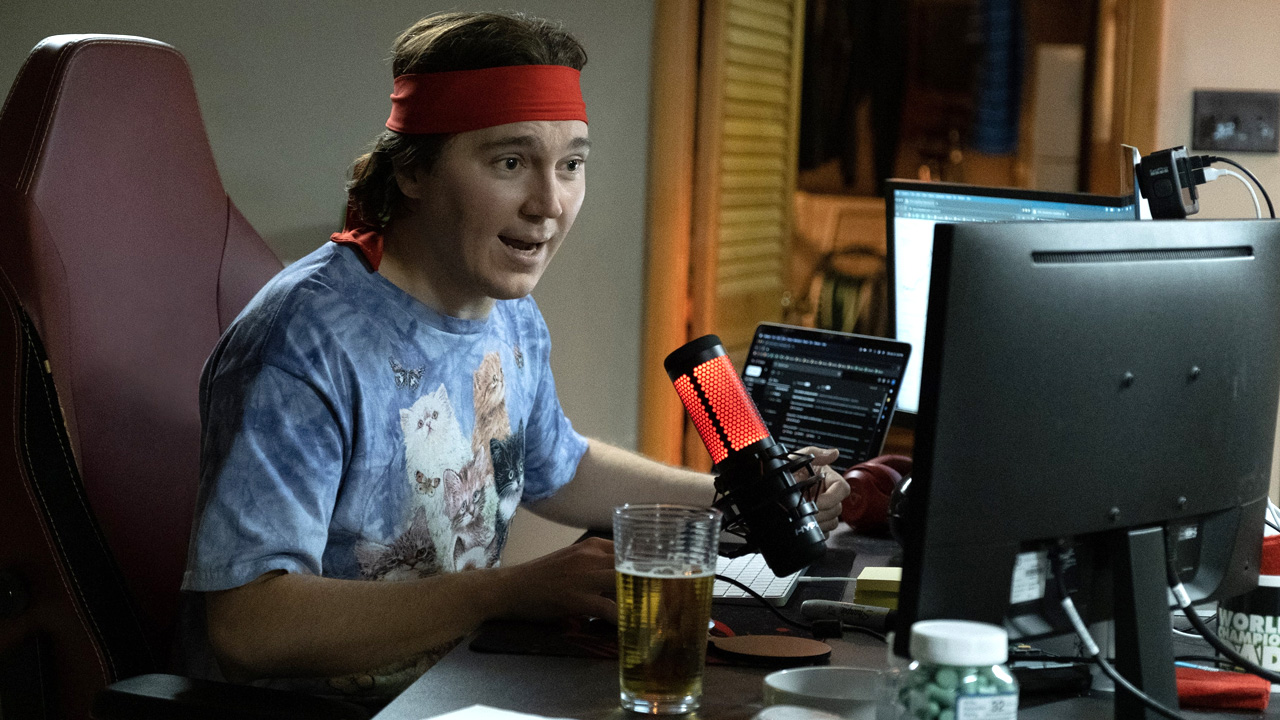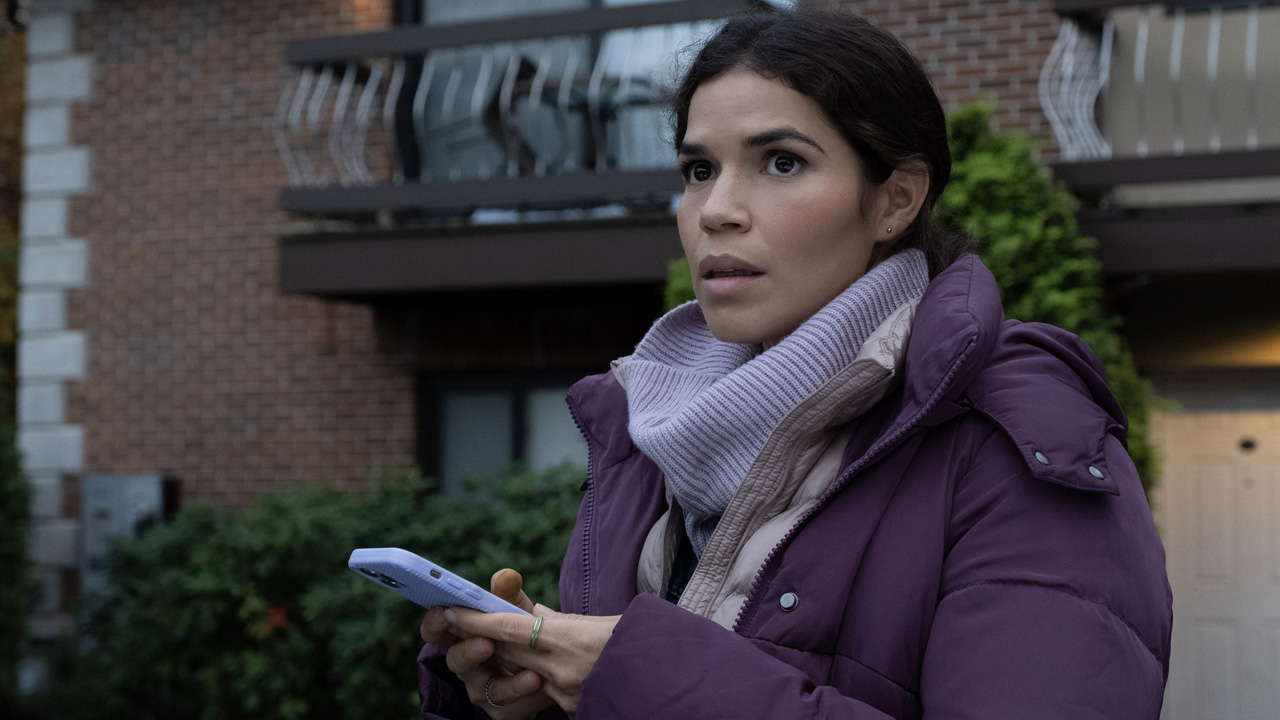Dumb Money tells a remarkable true story unremarkably
Dumb Money’s intent is clear and simple: get the story out there and make it palatable.

The real-life Wall Street chaos caused by Reddit and their plan to skyrocket GameStop’s stock is relayed in Dumb Money. Despite its wealth of Emmy-nominated actors and ability to make a complex story palatable, the film doesn’t reach the cinematic height of its peers writes Liam Maguren.
Oscar-winner The Social Network showed how a true story about nerds, numbers, glory, and greed could be rendered into an engrossing cinematic experience. Working from an appropriately venomous script by Aaron Sorkin, David Fincher’s examination of the rise of Facebook centred on the story of young men seeking acceptance and stature through power and innovation at any cost, shooting every scene with absorbingly gloomy tones (aided by that impeccable Ross-Reznor score) to match the diverse shades of assholes portrayed in the film.
Adam McKay’s The Big Short pulled a similar trick, weaponising a comedically sharp screenplay and a daringly haphazardous film editing style to rousingly relay the complex and catastrophic nature of the Global Financial Crisis. It was technically an underdog story about the guys who placed bets on the housing market to fail, but as Brad Pitt’s Ben Rickert eagerly pointed out, these ‘heroes’ also treated the colossal degradation of everyday lives as a slot machine.
While it may appear to be on similar grounds (it even shares an author with The Social Network in Ben Mezrich, who wrote the books each movie’s based on), director Craig Gillespie’s Dumb Money simply doesn’t have the cinematic edge or the moral shades of grey to stand up to its peers. A remarkable story told unremarkably, this retelling of the GameStop Wall Street saga only really stands out through its ability to make a significant story about stock and finance accessible to anyone.
Paul Dano and his signature punchable face fit snugly in the role of soft-spoken live-streamer Keith Gill, a common-man investor who shared his stock adventures and expansive knowledge of the market on YouTube via the grandma handle Roaring Kitty. As the humble nexus of this story, Gill creates waves as seemingly the first guy in the world who saw potential investing in the notorious gaming retailer GameStop (GME). Backed by the world of Reddit investor nerds—complete with crass terminology and in-joke memes—GME flies like a rocket, proverbially directed into the golden mansion of the Wall Street wolves who bet against it.
With Dano eating up the everyman hero role, Gill proves to be an irresistibly likeable leader of the Davids taking on the Goliaths. If this treatment of the real-life internet personality seems too wholesome to be true, some of Gill’s videos may convince you otherwise. The man really does come across as an earnest dork who knew his shit—though perhaps ill-equipped to handle his sudden popularity.

Bit players help illustrate the legion of followers Gill unwittingly amassed. Recent Barbie star America Ferrera plays Jenny, a nurse who already has it rough dealing with the dawn of COVID, so putting what little funds she has left into GME feels like both a big test of faith and a bold display of self-confidence. Same goes for two lovebird students Riri (Myha’la Herrold, Industry) and Harmony (Talia Ryder, Never Rarely Sometimes Always), the latter blurting out some rather unsubtle backstory relaying the obvious point that the 1%ers sometimes do nasty things to become richer. And then there’s Anthony Ramos as GameStop employee Marcus, a role that largely exists to remind viewers of GameStop’s notorious reputation as a shitty place to work.
They’re all one-note characters, but they work well as an overall depiction of the internet collective behind this daring financial manoeuvre. This shallowness is less forgivable for the ones closest to Gill, with Shailene Woodley and Pete Davidson doing the most from some extremely basic two-word roles: “supportive wife” and “goofball brother.”
The villains of the piece, the Wall Street rich-listers and the founders of ironically titled financial services company Robinhood, are depicted as either battle-hardened grumblers (cue Nick Offerman and Vincent D’Onofrio) or naive jackasses (cue Seth Rogen and Sebastian Stan). Those traits may be true to some degree, but by painting these men so broadly with this one brush, the film leaves no room to examine them further—and thus, withholds a lot for audiences to mentally chew on. (Perhaps it comes as no surprise that two of the executive producers of the film are Tyler and Cameron Winklevoss, better known as the “Winklevi” from The Social Network.)

It also doesn’t help that, stylistically, the film feels flavourless. Granted, Gillespie didn’t have the same grounds to show off the production prowess he demonstrated with I, Tonya and Cruella. Dealing with the much-less glamourous pandemic era of 2020 and 2021, Dumb Money circulates largely around work-from-home environments and those deemed as essential services (yes, including GameStop).
A superb script and excellent editing can do wonders here, but the film doesn’t reach that high. The edit, in particular, feels more dedicated to a peppy pace than indulging in the story’s best moments. One scene, in particular, saw Gill’s hivemind in a particularly dire situation. Briefly disconnected from their HUB—Reddit—the individuals have to make the tough decision to either stick together for the sake of the collective GME stock or bail and collect their winnings. It’s one of the plot’s primary moments of suspense, but the film only milks a couple of drops out of that tension before moving on to the next scene.
Dumb Money‘s intent is clear and simple: get the story out there and make it palatable. Indeed, this real-life Robin Hood tale (sans Robinhood) deserves to be told and its comedic approach should help sell the story to those (like me) who didn’t fully grasp it when it dominated news sites. However, because of this urgency, you can’t help but feel there was a great movie brewing that got chucked off the boil.
























